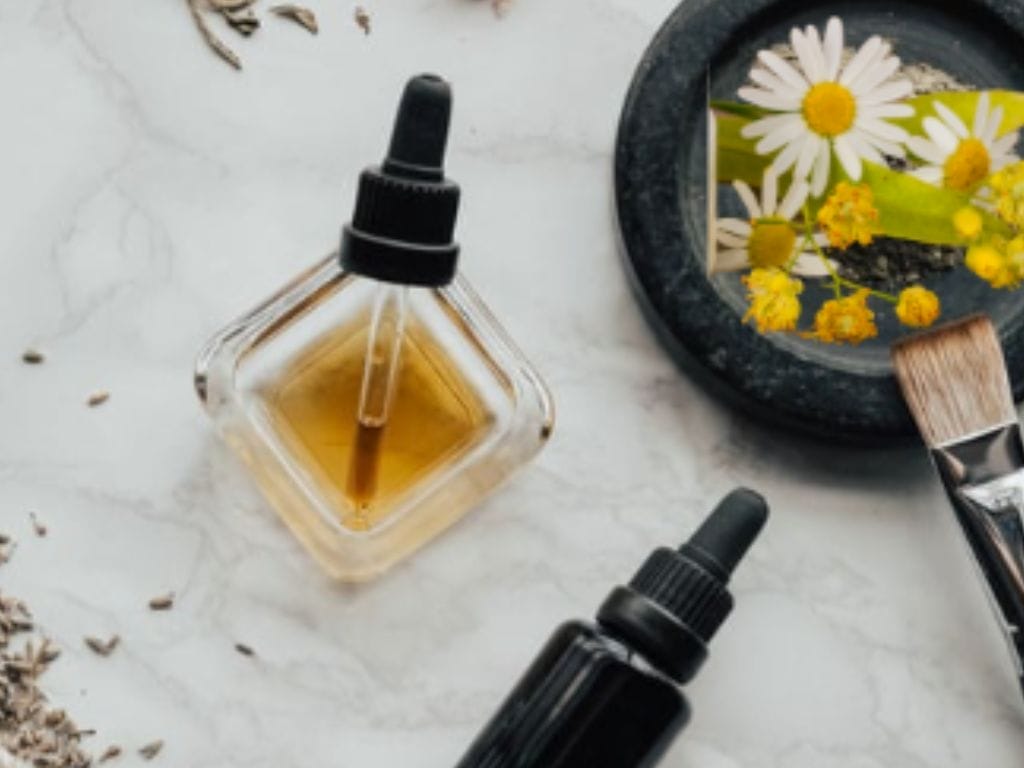Fragrance in Skincare: The Debate
Is fragrance in skincare actually bad? In this era of clean beauty, most skincare products proclaim the ingredients that they don’t include. After all, cult-favourite skincare brand The Ordinary built its credibility by opting out of adding fragrances to most, if not all, their products. And who doesn’t like to wind down a busy day with a serum tinged with the scent of sakura blossoms or your favourite fruit?
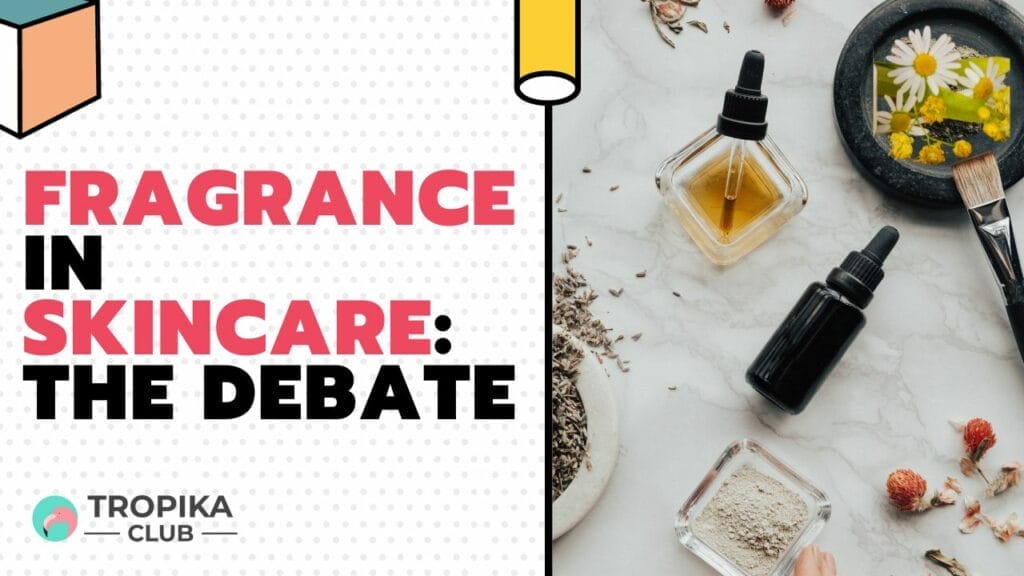
No Time to Read? Here’s a Snappy Summary of This Article
- Scented Risks: Fragrances in skincare may lead to irritation and allergic reactions, risking skin health for a pleasant aroma.
- Mysterious Ingredients: Manufacturers often hide potentially harmful chemicals under the generic term “fragrance,” leaving consumers unaware of what they’re applying.
- Inflammatory Business: The fragrance debate sparks controversy between skincare companies emphasizing scent and those prioritizing skin safety.
- Personalized Preferences: Individual skin types react differently to fragrances, turning the debate into a subjective battle of scent allure versus potential harm.
- Marketing Magic: Fragrance-free products gain popularity as consumers seek transparency, challenging the traditional allure of scented skincare.
- Scent-Safe Alternatives: Growing demand for fragrance-free options prompts innovative skincare formulations, providing a safer and more inclusive beauty experience.
Table of Contents
What Are Fragrances?
Fragrances are designed to emit a pleasant odor. It can be natural or synthetic. Natural fragrances are derived from, of course, a natural source. Think lemon, frangipani, or lavender. Most of the time, natural fragrances won’t last as long as their synthetic counterparts.
Synthetic fragrances, more often than not, are developed in a laboratory. Some are fully synthetic. Others can be semi-synthetic, where part of their formulations has natural compounds in them. Brands may use synthetic fragrances as they last longer: up to five years, compared to one to two years for natural fragrances.
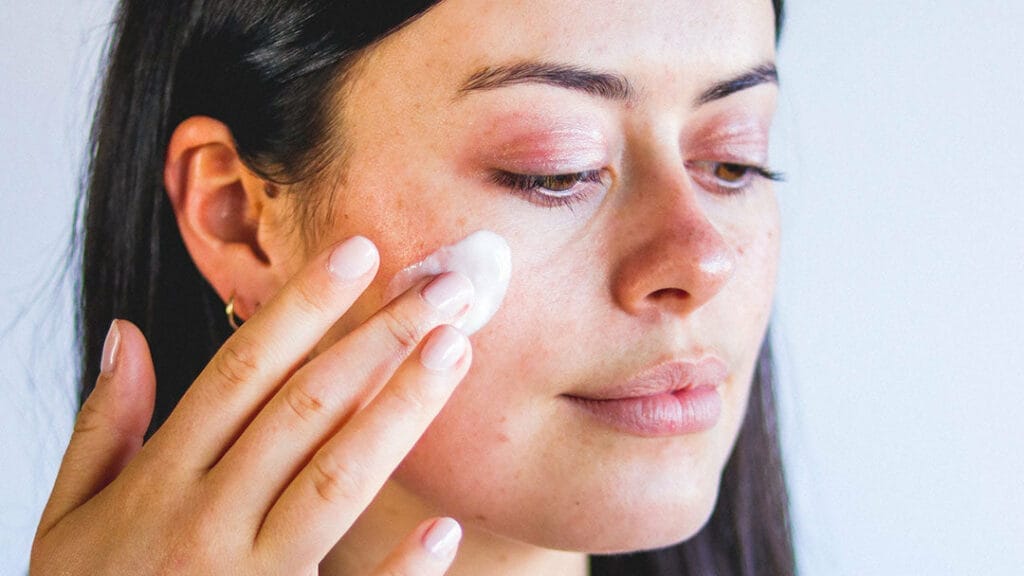
Fragrances in Skincare
The biggest problem about the addition of fragrances to skincare products is that products doesn’t show all the ingredients that go into formulating the fragrance. In the U.S., companies can simply list their fragrance and flavor ingredients as ‘Fragrance’ or ‘Flavor’ under Food and Drug Administration (FDA) regulations.
The FDA requires the list of ingredients for products under the Fair Packaging and Labeling Act (FPLA). However, that law can’t be used to force a company to share its ‘trade secrets’. Fragrance and flavor formulas can be complex, so they are the types of components that are most likely to be the ‘trade secrets’ for the manufacturers. And it doesn’t just end with synthetic fragrances. Even if products proclaim that they use ‘natural’ fragrances, you should investigate if the formulation is derived from natural sources.
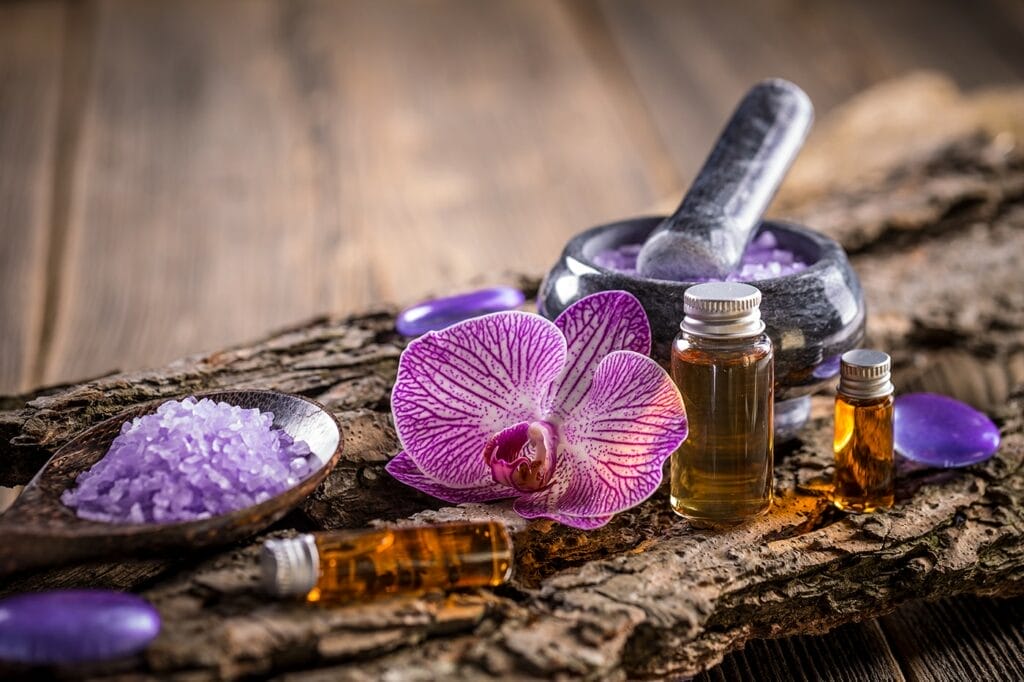
The Argument Against Fragrances in Skincare
Synthetic fragrances and even natural fragrances, such as essential oil can potentially harm the skin. The American Academy of Dermatology found that synthetic fragrances are the most common cause of allergic reactions. Fragrances have been found to exacerbate skin conditions like eczema, rosacea, psoriasis, acne, or dermatitis. In another study of perfumes used in toiletries and skincare products, they found that the allergenic compounds in the fragrance mix can’t be avoided at all in the use of perfumed cosmetics.
And we don’t know what’s inside fragrances. A safety assessment of fragrances found that a single scent may contain 50 to 300 distinct chemicals. In a 2018 report mentioned in The Guardian, Women’s Voices for the Earth (WVE), a women’s health non-profit reported over 1,200 fragrance chemicals that are currently in use have been flagged as potential or known “chemicals of concern”. It included seven carcinogens, 15 chemicals prohibited from use in cosmetics in the EU, and others cited in various international warning lists. Endocrine disrupters have been found as well. As they mimic human hormones, many researchers and advocates are particularly concerned about endocrine disruptors as they can have effects even in the smallest doses.
Proponents of the fragrance industry say that safety ultimately boils down to the question of exposure. A spokesperson for the Fragrance Creators Association said in an email statement: ‘The exposure to any individual fragrance ingredient in a product is extremely low – well below 1%. Fragrance ingredients are not hazardous based on usage.’
And there is no state, federal, or global regulating fragrance chemicals and their safety. The fragrance industry, as is much of the cosmetics industry, remains largely self-regulated too. The current framework is drafted by the research arm of the International Fragrance Association, which only sets voluntary safe use standards for chemicals.
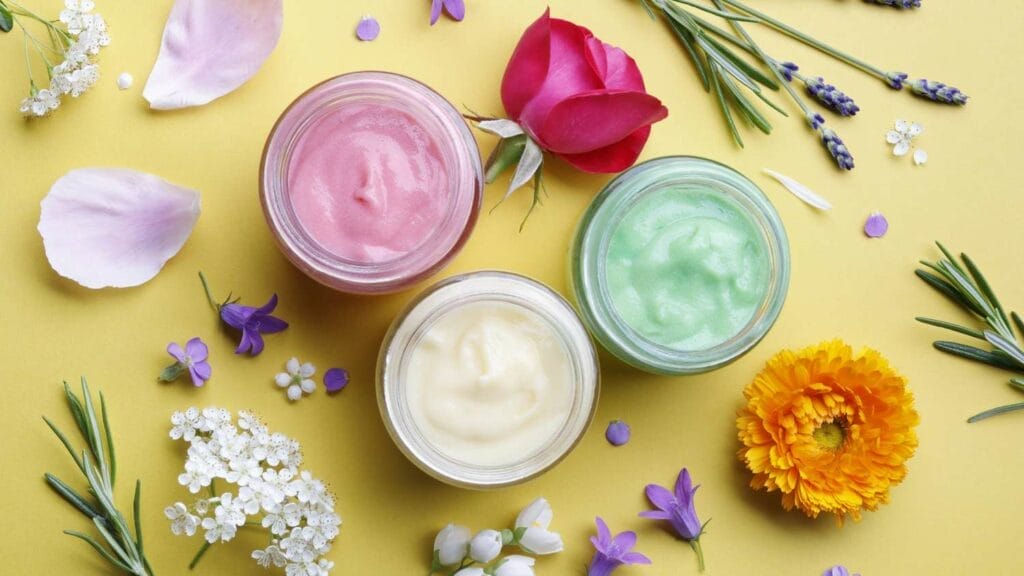
Fragrance in Skincare: Good or Bad?
If you’re allergic or sensitive to fragrance, yes. For some of us, even the smallest hint of a fragrance can give us headaches. Still, anyone, anyone, no matter their skin condition, can have a bad reaction from using fragrances. Some of the chemicals in fragrances have been linked to migraines, respiratory conditions, skin and eye irritations. and endocrine disruption.
For the rest of us? Maybe. You can stick to the hard and fast rule of avoiding fragrances altogether. But say you can’t part ways with that lavender toner, you can still go and find out if there’s a list of ingredients that give off that lavender scent. Due diligence can save you a world of pain.
One should be wary of labels like ‘unscented’ too. It might not mean that the product is truly ‘fragrance-free.’ That’s because some products may use components to mask the smell of the original formulation. So even if you don’t smell any fragrance, it doesn’t mean that there are chemicals that cover the smell of the product’s underlying formula
A Final Take
In the golden age of social media and influencers, every new product will face scrutiny from across the globe the moment it gets to market. And there is a repertoire of resources on the internet to help consumers parse through their formulas.
But if you want to keep it simple, just keep it simple: avoid fragrances on the more sensitive parts of your skin, such as your face, neck, and under-eye area. For the rest of your body with less sensitive skin, fragrances should cause no harm.
So the usual axioms for skincare still apply: there is no one-size-fits-all; if you don’t know why your skin is having some irritation, best to consult a professional allergist or dermatologist.
Conclusion
In conclusion, the fragrance debate isn’t just about what smells nice. It’s about making informed choices for your skin’s well-being. As the fragrance-free movement gains momentum, skincare brands are stepping up, providing alternatives that let you enjoy skincare without the unnecessary scent baggage. Your skin deserves the best, and it’s time to say no to hidden ingredients and yes to a fragrance-free, transparent beauty experience. Because when it comes to skincare, the real magic is in keeping it safe and simple.

Frequently Asked Questions (FAQ)
Q: Are fragrances in skincare products harmful?
A: Some fragrances may cause skin irritation and allergies. It’s crucial to be aware of your skin’s sensitivity and opt for fragrance-free options when needed.
Q: Why is transparency in skincare ingredients important?
A: Transparent ingredient lists help consumers make informed choices, avoiding potential allergens and harmful chemicals often concealed under the generic term “fragrance.”
Q: Is fragrance-free skincare a passing trend?
A: No, it’s a growing movement. Consumers in Singapore and worldwide are increasingly opting for fragrance-free options, seeking safer and more transparent skincare experiences.
Q: How do individual skin types impact reactions to fragrances?
A: Skin types vary, and what suits one may irritate another. Understanding your skin’s unique needs is crucial when navigating the fragrance debate.
Q: What alternatives are available for those sensitive to fragrances?
A: Skincare brands are innovating with fragrance-free formulations, offering a scent-safe option for those seeking effective yet gentle products.
Q: How can I stay updated on the latest in fragrance-free skincare?
A: Follow Tropika Club Magazine for regular insights on skincare trends, fragrance debates, and reviews of skincare products in Singapore and beyond.

Have an Article to Suggest?
Tropika Club is always looking for new and exciting content to feature in their magazine and they value the input of our readers. If you have any noteworthy content or articles that you believe would be a great addition to Tropika Club’s magazine, we are open to suggestions and encourage you to reach out to us via email at [email protected]. By doing so, Tropika Club values your expertise and knowledge in the matter and appreciates your willingness to help. We will review your recommendations and update our list accordingly
Meanwhile, Check Out Tropika Club’s Ecosystem of Websites
Tropika Club Magazine – Tropika Club Magazine is a Singapore-based publication that features articles on a wide range of topics with a focus on local businesses and content for the region. The magazine emphasizes supporting local businesses through its #SupportLocal initiative, which includes coverage of everything from neighborhood hawker stalls to aesthetic clinics in town. In addition to highlighting local businesses, Tropika Club Magazine also covers a variety of local content, including beauty, lifestyle, places, eats, and what’s on in Singapore and the Asia Pacific region.



